Guidance of Music Therapy for Seniors with Sleep Problems
Older people often grumble about having trouble sleeping at night. There were approximately 9,000 participants in the National Institute on health research who claimed to have at least one chronic sleeping issue. Early morning waking and excessive afternoon drowsiness are among the most common signs of sleep disorders in the aged.
As we become older, there are several things that might disrupt our sleep cycle. These include urgent and chronic medical conditions, drug side effects, mental problems, basic sleep disorders, cultural disturbances, terrible sleep patterns, and circadian rhythm alterations. Sleep-wake issues could be exacerbated by incorrect therapy begun by the patient, family, friends, doctors, or other health care professionals.
Chronic sleep disorders might have serious ramifications. Falls and other mishaps may occur as a result of insufficient sleep or the use of sedative drugs on a regular basis. Insomnia could cause a negative impact on cardiovascular health as well as the lungs and central nervous system. Hypertension and obstructive sleep apnea hypnosis have been shown to go hand in hand in studies. It's common for older adults with dementia to end up in a hospital because of a lack of sleep. Thus, seniors over the age of 65 should be tested and treated appropriately for sleep disorders.
Is It Possible to Fall Asleep Faster While Listening to Music?
Sleep-inducing music, including lullabies and calming melodies, is well-known to parents. Thankfully, lullabies aren't just for kids since older adults may enjoy them, too. Listening to relaxing music improves the quality of sleep for the elderly.
In one research, senior citizens who were exposed to 45 minutes of music prior to bedtime reported an improvement in sleep quality even from the first night. Even more promising is the fact that this advantage seems to have a long-term impact, with research members experiencing better sleep the more frequently they integrated music into their nighttime regimen.
Additionally, music may shorten the time seniors would take to drift off to sleep. In research on elderly women with indications of insomnia, participants listened to a self-selected playlist before going to bed for ten successive nights. Before introducing music to their nighttime ritual, it took participants between 27 and 69 minutes to hit the sack; after introducing music, it only took them between 6 and 13 minutes.
Music therapy may not only help elderly people fall asleep easier, but it could also help them sleep more efficiently, which means they will get more solid sleep and fewer nighttime wake-up times.
Music has been shown to improve sleep quality in the elderly.
Choosing the right style of music for your senior loved one to go asleep may have a significant impact. Be aware that tunes with a beat-per-minute count that is higher than 60 might have the inverse result: they are more prone to causing an individual's heart rate to increase and to activate brain function.
Moreover, music that brings back memories, whether happy or sad, might disrupt sleep. You might also want to play music that has special meaning for your senior family members, but it's definitely not the ideal option for them to unwind and sleep well at night. You may play these tunes throughout the afternoon to assist your senior loved ones to recall or get them moving.
The elderly could choose from a broad range of sleep-inducing sounds and tunes available and the most vital point is to let older adults have joy experimenting with many possibilities until they find one that helps them go off to sleep peacefully.
Classical Music
Classical music has a special place in numerous seniors’ hearts, and they feel it calming and soothing. There are no lyrics to disturb or engage the elderly's brain since it is completely instrumental. Keep in mind that Flight of the Bumblebee isn't a good choice.
Piano and Jazz
A soothing jazz or piano song is one of the best ways to unwind if your senior loved ones are looking for music without lyrics or singers, having tempos between 50 and 60 beats/minute. Piano and jazz may be enjoyed by people of all ages, from those who want a more traditional sound to those who prefer a more current one.
Nature Sounds
It is possible to supply older adults with the proper blend of relaxing and repetitive noises from nature's soundtrack which offers soothing experiences. There is a broad variety of options, including insects, forest noises, rainfall, rivers, and much more.
Ambient and New Age Music
Ambient and new age music are known for its ability to help people go asleep since it is full of soothing instruments and frequently excludes speech. Take a listen to Max Richter's tune "Weightless," which is widely regarded as the greatest sleep-inducing musical composition ever created.
Singing Bowls
Tuning to singing bowls is one of the most relaxing and calming forms of meditation there is. Traditionally used by Buddhist monks, singing bowls produce a soothing, meditative sound that is believed to have medicinal effects.
Guided Meditation
Older individuals who have trouble falling asleep may benefit from using a directed audio meditation instead of a soothing background. There is nothing more frustrating than being unable to get a good night's sleep, but there are meditation tutorials seniors may access online to alleviate that pain.
What You Need to Know About Including Music in Your Sleeping Habits
Good sleep hygiene may benefit greatly from the use of music. Here are some things to take into consideration when introducing music into a nighttime practice.
Make it a habit
Sleep is much improved by following a set schedule. Establish bedtime routines that allow the body to relax and destress, and use music in a manner that is both soothing and reliable. In addition, a dark bedroom and a cozy can provide you with additional serenity and relaxation.
Take caution while using headphones
If the volume is turned up too high when wearing earphones or earbuds to bed, there is a risk of causing harm to the ear canal. A development of earwax and an increased likelihood of developing ear infections are two more potential side effects of sleeping with earphones in. Alternatively, seniors may experiment with placing a tiny radio or speaker in a location that is near the bed. Select speakers that do not emit a strong light, since this might make it difficult to fall or stay asleep, and pick a volume that is calming while still being audible.
If senior citizens make listening to music before bed a regular part of their routine, after just a few days they might discover that the music starts to seem like a comforting lullaby and helps them fall asleep more easily.
Listening to soothing music while going off to sleep is merely one way to enhance seniors’ sleeping. For regular, high-quality sleep, doctors advise following a sleep routine that allows seniors to go to bed and then get up at a fixed time every weekday, despite weekends or vacations. In addition, eliminating coffee at least 6 hours before going to bed and restricting screen time at least 1 hour before sleep helps guarantee that seniors are less frazzled as they attempt to go asleep.
Recommend Products
-
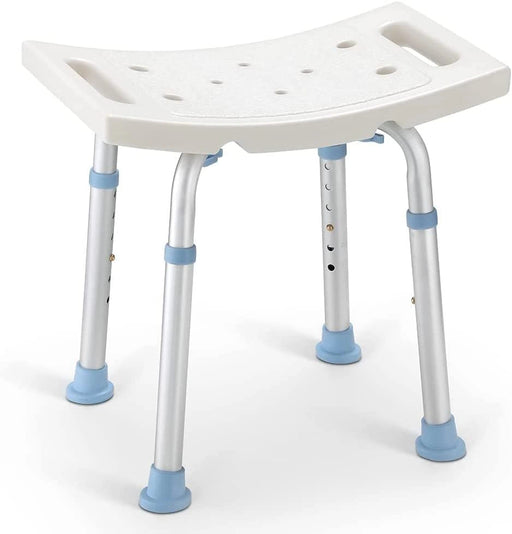 Sale
Sale
Standard - 300LBS Capacity Shower Stool
Original price $51.99From Original price $28.99Original price $51.99Current price $28.99From $28.99Current price $28.99OasisSpace Medical Square Shower Stool for Bathtub OasisSpace Square Shower Stool for Bathtub is approved as the highest standard(FDA) for medical...
View full detailsSaleOriginal price $51.99From Original price $28.99Original price $51.99Current price $28.99From $28.99Current price $28.99 -
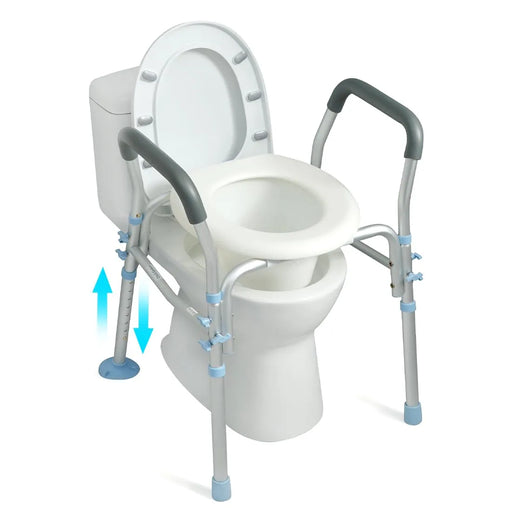 Sale
Sale
300LBS Capacity Raised Toilet Seat with Arms
Original price $120.99From Original price $69.99Original price $120.99Current price $69.99From $69.99Current price $69.99OasisSpace Raised Toilet Seat with Arms - Safe and Convenient OasisSpace Raised Toilet Seat with Arms provides stable support for users to sit dow...
View full detailsSaleOriginal price $120.99From Original price $69.99Original price $120.99Current price $69.99From $69.99Current price $69.99 -
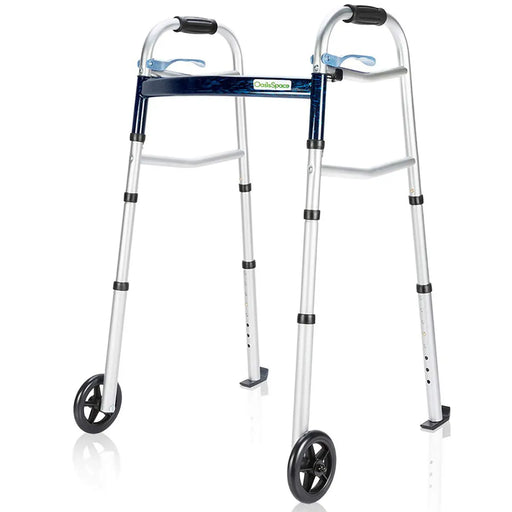
350LBS Capacity 2 Wheel Walker
From Original price $39.99Original price$39.99From $39.99Current price $39.99Product Advantages OasisSpace's 350LBS Capacity walker offers a fusion of lightweight design and sturdy support, crafted from high-grade anodized ...
View full detailsFrom Original price $39.99Original price$39.99From $39.99Current price $39.99 -
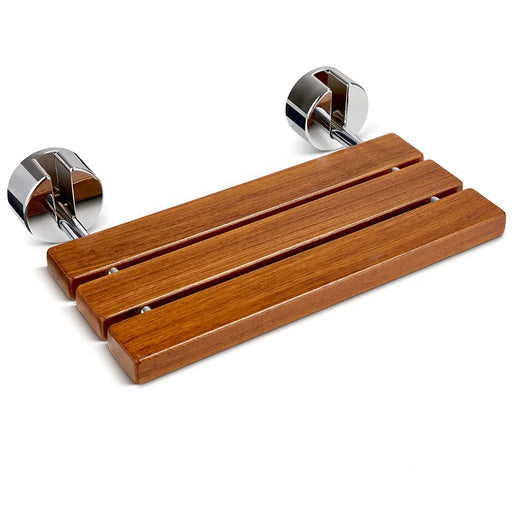
Wall Mounted - 400LBS Capacity Teak Folding Shower Seat
From Original price $131.99Original price$131.99From $131.99Current price $131.99Advantages OasisSpace Teak Wall-Mounted Shower Seat adopts a folding design, which can save space to the greatest extent and can be folded up at a...
View full detailsFrom Original price $131.99Original price$131.99From $131.99Current price $131.99 -
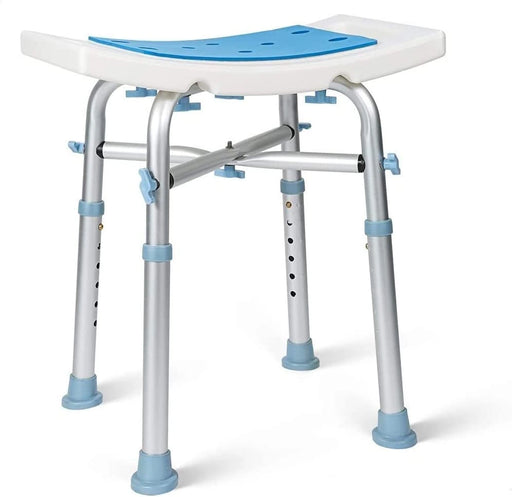 Sale
Sale
Padded & Bariatric - 500LBS Capacity Heavy Duty Shower Stool
Original price $57.99From Original price $36.99Original price $57.99Current price $36.99From $36.99Current price $36.99OasisSpace Medical Heavy Duty Bariatric Shower Stool OasisSpace Medical Heavy Duty Bariatric Shower Stool is approved by the FDA, which is the hig...
View full detailsSaleOriginal price $57.99From Original price $36.99Original price $57.99Current price $36.99From $36.99Current price $36.99 -
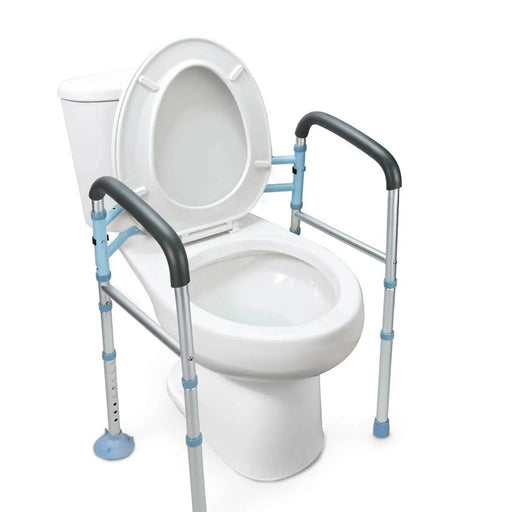 Sale
Sale
300LBS Capacity Stand Alone Toilet Safety Rail
Original price $69.99From Original price $44.99Original price $69.99Current price $44.99From $44.99Current price $44.99OasisSpace Toilet Safety Rails - Fit Any Toilet OaisSpace stand-alone toilet safety rails provide sturdy support for the elderly and people with ...
View full detailsSaleOriginal price $69.99From Original price $44.99Original price $69.99Current price $44.99From $44.99Current price $44.99







